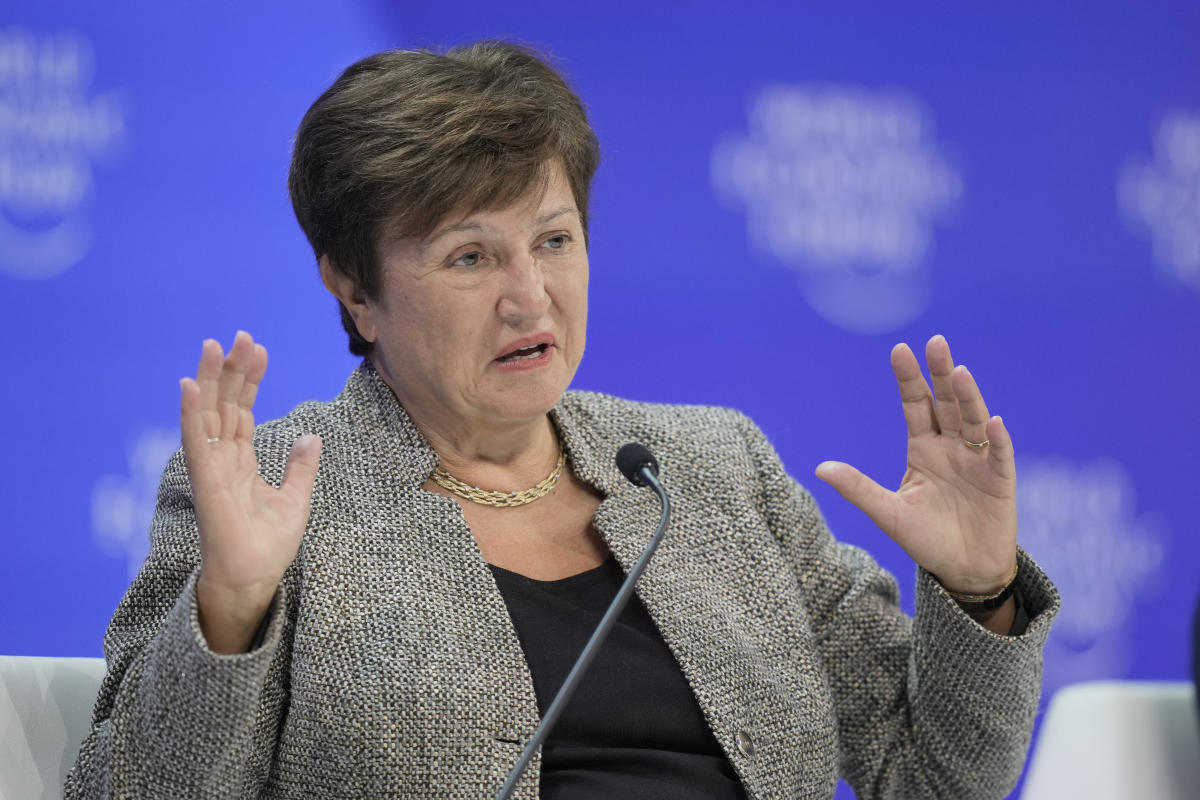During the recent International Monetary Fund (IMF) and World Bank meeting, IMF head Kristalina Georgieva expressed her concerns about the state of the world economy. Despite facing challenges such as high interest rates and conflicts in Ukraine and Gaza, the global economy has shown resilience. However, Georgieva noted that there are still issues to be worried about, including stubborn inflation and increasing government debt levels.
Inflation has decreased but not disappeared entirely, Georgieva highlighted. She mentioned that strong economic growth in the United States has made it difficult to bring inflation down quickly. Additionally, she cautioned that government debts worldwide are on the rise, reaching 93% of global economic output in 2021 compared to 84% in 2019 before the pandemic.
To address these challenges, Georgieva urged countries to improve tax collection and public spending efficiency. She emphasized the importance of building fiscal resilience to prepare for future shocks. The IMF recently revised its global economic growth forecast to 3.2% for 2024 and 2025, reflecting a modest upgrade from previous projections.
Despite the overall strength of the world economy, Georgieva highlighted some factors contributing to sluggish global growth. She pointed to low productivity gains, inefficiencies in matching workers with technology, and the impact of prolonged periods of low interest rates on business competitiveness. Georgieva also mentioned demographic trends such as aging labor forces as a factor limiting economic dynamism.
In contrast, Georgieva praised the United States for its higher productivity gains compared to Europe. She attributed this to factors such as a more supportive regulatory environment for innovation and lower energy costs. Georgieva suggested that countries could boost their economies by reducing bureaucratic barriers and increasing female participation in the workforce.
Overall, despite challenges such as inflation and government debt levels, Georgia expressed optimism about the future of the world economy if countries take action to build fiscal resilience and address these issues effectively.
The article can be rewritten like this:
During a recent meeting between international organizations like IMF and World Bank officials, Kristalina Georgieva expressed concerns about global economic stability despite facing challenges such as high-interest rates conflicts in Ukraine/Gaza.
While acknowledging that there have been improvements due to resilience shown by economies worldwide,
she stated that persistent issues remain with stubborn inflation persisting even after decreasing slightly.
Georgieva warned countries about increasing government debt levels reaching an alarming percentage of global economic output (93%) post-pandemic compared to pre-pandemic (84%). To tackle these problems head-on, she recommended enhancing tax collection efficiency while focusing on building fiscal resilience.
The IMF recently upgraded its forecasts predicting a global economic growth rate of 3.2% for both 2024 and 2025 after revising them from initial projections due to new information or data adjustments.
Georgieva highlighted several reasons why sluggish growth continues globally including low productivity gains resulting from mismatches between workers’ skills and technology advancements; prolonged periods of low-interest rates affecting businesses’ competitiveness; bureaucratic barriers hindering progress; demographic trends like aging labor forces limiting dynamism; technological disruption caused by automation replacing jobs among others.
However, Georgieva commended America’s performance regarding higher productivity gains compared with Europe due primarily to favorable regulatory environments supporting innovation at a lower energy cost than most developed economies.
To boost their economies furthermore beyond these constraints presented by markets today’s conditions,
Georgieva advised governments across borders should consider streamlining administrative procedures reducing red tape so women could participate more actively in professional life thereby promoting gender equality while working towards fostering sustainable development goals across all regions around our planet Earth is one way forward towards achieving more inclusive societies where everyone can benefit from rapid technological advancements without being left behind or marginalized!


